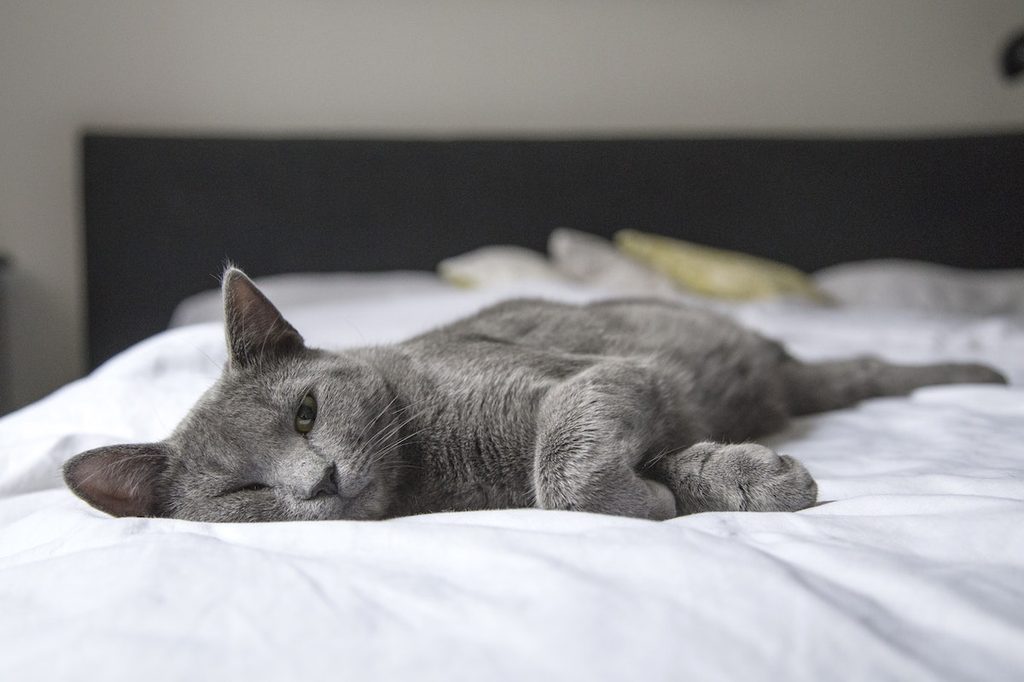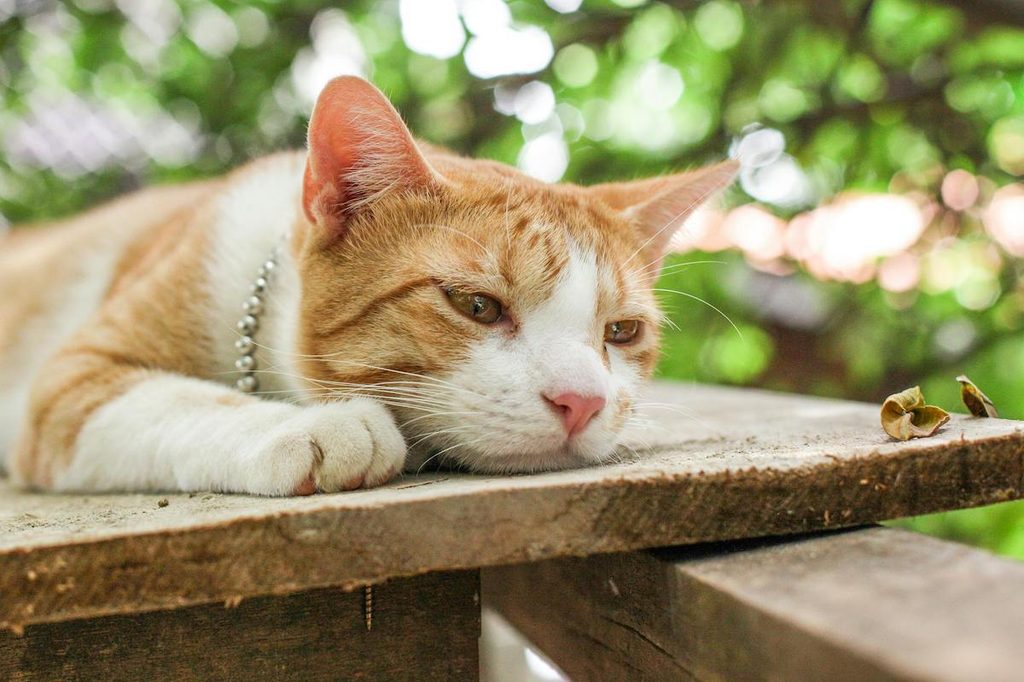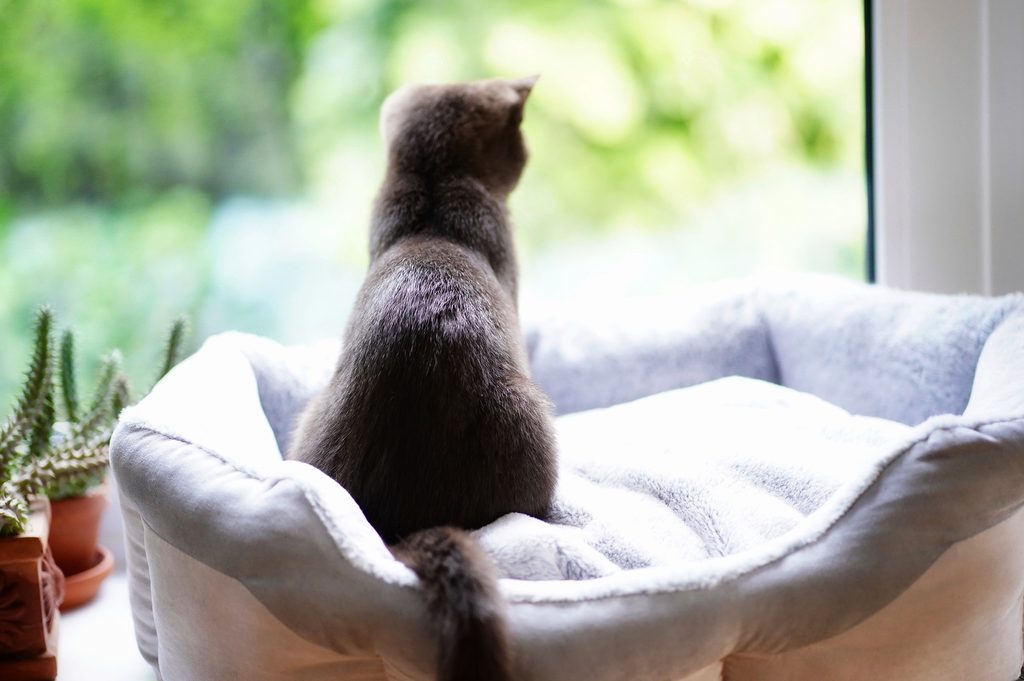
Your cat might appear fiercely independent, but that doesn’t necessarily mean that they can spend long periods of time alone. Cats can spend hours alone quite happily, but extending that time by days can be stressful and upsetting for any feline — even if he seems to do just fine without you around.
If you’re planning a vacation, a work trip, or any other occasion that will keep you out of the home, then it’s also important to plan for your cat’s care and companionship. This can help keep your cat safe and happy, giving you better peace of mind during your time away.

How long can you leave a cat alone?
According to most vets, cats will be fine when left alone for up to 24 hours. However, you shouldn’t go beyond that without having someone available to check on and spend some time with your cat. In fact, many cats will need (or at least benefit from) a check-in if it’s less than 24 hours! If you do need to leave your furry friend alone for a whole day, make sure he’s securely inside and that all your doors and windows are tightly closed and secured. Leave your cat with plenty of food and put out multiple water dishes so that even if your cat tips one over, he still has access to water.
Can you leave a cat alone for a week? No, not safely. If you have to be gone for that long, then you’ll need to find someone to help care for your cat while you’re away. Your cat won’t only be safer but will be happier, too.

Which cats cannot be left alone for 24 hours
It’s important to keep in mind that while 24 hours is the maximum amount of time most cats should be left alone, this rule doesn’t apply to all felines. There are plenty of cats, such as kittens and senior cats, who will need company and care much more often than once per day.
Of course, if your cat is on a medication that needs to be taken on a precise schedule, this may interfere with how long they can be left alone. Special needs cats, senior cats, and those who may need help with basic tasks may need more supervision and will have to be alone less frequently. Additionally, kittens should not be alone for more than a few hours due to how often they eat and how much they rely on interactions to learn and develop.
“We recommend that a 1- to 3-month-old kitten be left alone no longer than 4 hours at a time,” explains Jacksonville Community Pet Clinics, “while a five-month-old can be left a little longer, and a six-month-old can be left for the workday.”

Why cats can’t spend long periods alone
Leaving your cat alone for long periods can stress him in multiple ways. Cats are creatures of routine, and it can be upsetting for your cat when that routine is suddenly and significantly changed. Your cat probably knows just what time you arrive home from work each day, and he also expects to be fed at certain times. Changing up that routine is a source of stress, even if it occurs just for a few days. Sometimes, though, this can’t be avoided.
Although your cat might appear solitary, chances are he depends on your companionship more than you think. Cats who are lonely or bored can act out in different ways. Your cat might express his stress by excessively grooming himself, resulting in bald patches in his coat or overall thinner hair. Some cats will stop using the litter box or will have accidents throughout the home when they’re stressed or upset. When you get home, your cat might be unusually clingy or might try to avoid and ignore you entirely.
Additionally, it can be difficult to guarantee a fresh food and water supply for your feline for longer than a day. Even if running water containers stay on for the entire week, bacteria can build up, making that water not-so-healthy. And the same can be said for cat food! Even dry food can go stale or grow bacteria when outside an airtight container for more than a day.

What your cat’s caregiver should do when you’re away
If you have to be away from home for a longer time, like for a vacation, then you’ll need to take some steps to make sure your cat is safe and well cared for. Leaving your cat alone for 24 hours is fine, but for a longer trip, ask a family member or friend to stop by daily. Alternatively, consider hiring a cat sitter to come and care for your cat.
Ask the person caring for your cat to not only clean out the litter box and leave food and water but also to spend some time interacting with the cat. This can help keep your cat from being too bored and lonely, and play sessions and visits can help break up the day. Even if your cat is shy and isn’t willing to socialize with strangers, ask the caregiver to make sure that they locate and visually check on your cat each day to confirm that he’s well. Not only will this ensure that your feline’s basic needs are met, but it will establish a small sense of routine for them, too.
When planning for a trip, you’ll also need to plan for your cat’s well-being and care. If you know that time away is coming up, try to have the caregiver over for multiple short visits to meet and get to know your cat. The more familiar the caregiver is, the better and the likelier your cat will be to come out and spend a little time with the caregiver. Be sure to also stock up on important items like cat litter, extra food, and extra medications if your cat is on any. Having extras ready to go can be helpful just in case your trip is unexpectedly extended. With a little planning, you can make your time away as stress-free for your cat — and you — as possible.


